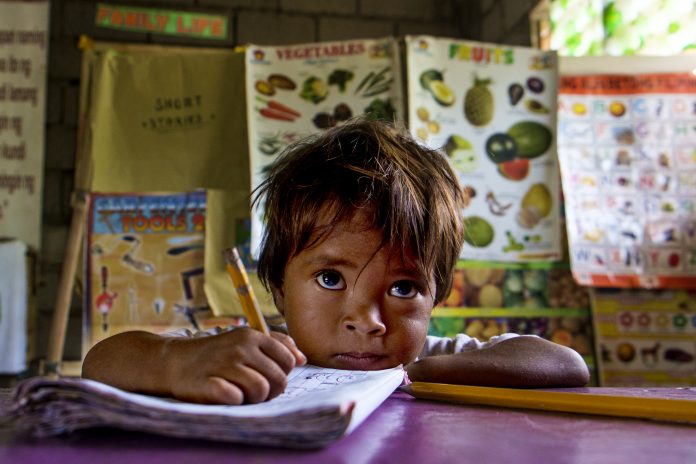We know of several instances in the Gospels where Jesus speaks of “childlikeness” as a virtue, such as when he says only the childlike will inherit the kingdom of God.
That is not the case today, either in the Gospel or in the first reading from St. Paul. Today we hear of the pejorative sense of being like little children—perhaps more in the negative sense of being immature than the positive sense of being CHILDLIKE.
Let’s start with the Gospel. Today we heard Jesus comparing the people of his generation to little children who sit in the marketplace, and who expect people to do as their playmates do when they take turns play-acting, like singing and dancing to a given tune.
We also hear something similar from the latter part of our first reading from the first letter of Paul to the Corinthians. He says, “When I was a child, I used to talk like a child, think as a child, reason as a child; but when I became an adult, I put aside my childish ways.”
When you are a child, because the adults presuppose that you do not know better, you have to do as you are told, you have to obey the adults, you have to believe them when they say this is what is best for you. You cannot decide yet to do things on your own, like travel alone, see a movie alone, go to the park alone, or make important decisions on your own.
Remember how the 12-year old child Jesus himself had to be reprimanded for staying behind in Jerusalem without permission from his parents? When you are a child, you are expected to seek parental guidance.
The philosopher Friedrich Nietzsche, describes the “metamorphosis of the human spirit” as a process that involves three stages: camel, lion, & child.
He describes the initial stages of the development of the human spirit as the CAMEL stage. In our younger years, we are like beasts of burden that are made to carry traditions and expectations like a heavy load of on our backs. We accept the things that we are told by our parents, our teachers, our pastors, as true. We are expected to trust them, never to question them because they know what’s good for us.
At some point however, Nietzsche says we transition into the rebellious LION stage. That is the phase when we develop the courage to question unquestioned presuppositions, to assert our freedom from the inherited traditions.
Strangely, for him, the highest stage of maturity is when we grow into the stage of the playful, unburdened, and no-longer angry CHILD. In this final stage he says we would have outgrown both the blindly obedient camel stage and the rebellious lion stage.
Is it possible for people to mature only in years but not in spirit? I think this is what Jesus in insinuating in today’s Gospel about people who get fixated on laws and traditions, about righteousness as nothing but complying with certain religious and societal expectations.
For St. Paul, what makes us transition into maturity and no longer dependent on the restrictions of the law is LOVE. He calls it the greatest spiritual gift than alone can make us truly wise. John says something like this too in his epistle. He says, when we abide by the law because we are still motivated by fear of punishment, it only means we have not yet known God who is love. He says, “There is no fear in love, but perfect love drives out fear because fear has to do with punishment, and so one who fears is not yet perfect in love.” (1 John 4:18)
But how do we really know we are growing in the Christian virtue of LOVE? St. Paul gives us a checklist in 1 Cor 13, which unfortunately, has been so identified with marital love or the romantic love between husband and wife. The word in Greek is AGAPE (or CARITAS in Latin); it is supposed to be a higher form of love than the Greek PHILIA (or Latin AMOR). It is what Jesus means when he says, “Love one another as I love you.”
How do we know we are learning to love like Christ? Here’s the checklist for self assessment as recommended by St. Paul. Let us ask ourselves: Am I learning to be patient and kind? Am I able to outgrow jealousy, pride, arrogance, rudeness, and self-centeredness? Am I becoming slow to anger, not resentful , desirous of the good of the other? Am I able to forgive? Am I ready for sacrifice? Am I growing in faith and hope, and in the capacity to endure sufferings and trials?
If only we can do this on daily basis, then we can truly grow in the love of Christ. It is all that it takes to prepare for eternity and see God face to face.
This is a homily delivered by Bishop Pablo Virgilio David of Kalookan for September 16, 2020, Wednesday of the 24th Week in Ordinary Time, Memorial of Martyrs, Sts. Cornelius and Cyrprian, Luke 7:31-35









